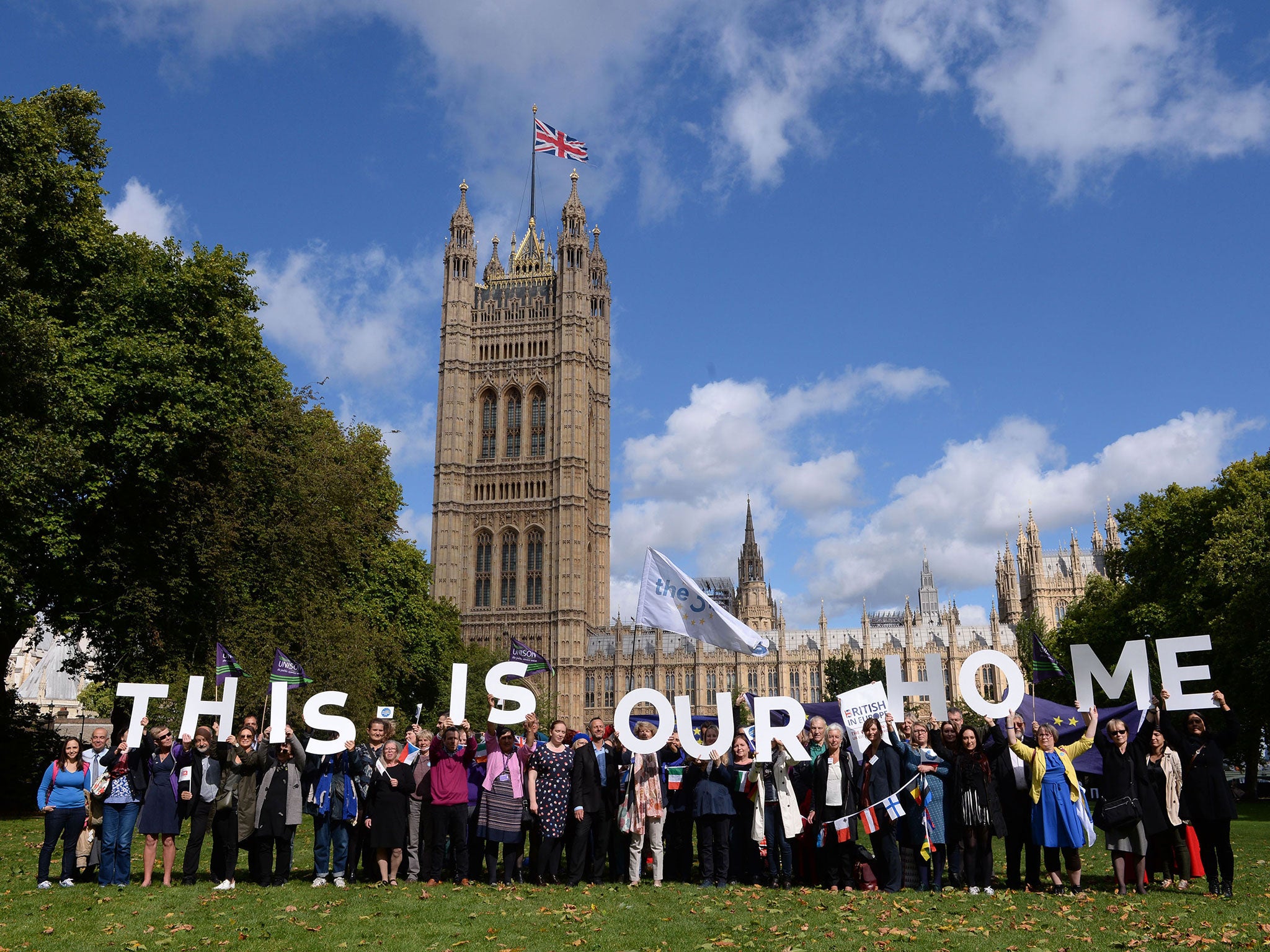Brexit: Minister admits EU citizens could be deported before appeals over their right to stay
Critics say EU nationals face 'being separated from their homes, their jobs, their community and their children for months on end as a result of Home Office errors'

EU citizens in the UK face being deported before they can challenge a ruling that does not allow them stay after Brexit, a Government minister says.
The admission triggered an immediate warning that it would cause “considerable alarm” to millions of people already facing huge uncertainty about their futures.
Immigration minister Brandon Lewis, giving evidence to the all-party Home Affairs Select Committee, insisted there would be a presumption that EU citizens should be allowed to stay.
But he did not dispute a warning from Yvette Cooper, head of the committee, that mistakes might not be corrected “until the appeal goes through, by which time somebody has been deported”.
Ms Cooper also pointed out that the Home Office is notorious for mistakes, saying: “It currently loses half of all appeals.”
She added: “This process is stressful enough for EU citizens without facing the possibility of being separated from their homes, their jobs, their community and their children for months on end as a result of Home Office errors.”
Theresa May has repeatedly promised that the 3.2 million EU citizens in this country have no reason to fear deportation, while claiming an agreement with Brussels is within “touching distance”.
They would be able to apply for “settled status”, with registration due to begin by the second half of next year.
Speaking afterwards, the chairwoman added: “The minister's failure to guarantee that EU nationals won't be deported while they appeal if the Home Office refuses them settled status will cause considerable alarm.”
And Nicolas Hatton, the founder of the3million group which represents EU citizens, said: “While the Home Office is trying to paint an idyllic picture of administrative prowess, we know the reality is very different on the ground.”
The fear was that the registration system – involving checks of criminal records, good character, proof of residence and financial resources – would “expose many EU citizens to the Home Office's hostile environment, with a real risk of deportation”.
“It’s vital that a much simpler process is adopted, with the acceptance of EU citizens groups,” Mr Hatton added.
The Home Office has pledged an “easy access” registration process that will avoid the current, hugely complex system for applying for permanent residence.
Settled status would be available for EU nationals who have lived in Britain for five years. Those already here, but for less time, would be allowed to stay until they have reached five years.
During the evidence session, Mr Lewis said he expected deportations to take place only in clear-cut cases of non-EU nationals attempting to “game the system” by claiming the new status.
Cases should be dealt with within a couple of weeks and applicants may not have to submit their passport as part of the process, he said.
And he insisted the Home Office would seek to swiftly correct any mistakes, as it did recently when 106 EU nationals were wrongly sent letters ordering them to leave the country.
Some 1,200 officials are being recruited to UK Visas and Immigration (UKVI) to handle an expected 3.5 million applications over the next two and a half years.
But Ms Cooper questioned whether that would be enough, given that UKVI needs 6,500 staff to deal with the three million cases it currently handles each year.
Join our commenting forum
Join thought-provoking conversations, follow other Independent readers and see their replies
Comments
Bookmark popover
Removed from bookmarks